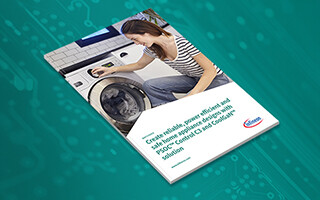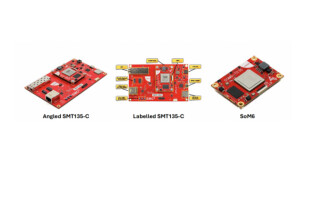The Dawn of Industry 5.0: High Innovation or Ignoble Hype
June 05, 2024
Blog

Is the 5th Industrial Revolution upon us? Well, every facet of the connected enterprise space, from materials creation and mining, through supply chain and manufacturing, to retail and end uses; and in every layer from the Edge to the Cloud, and IoT through Embedded, has been deep in the Fourth Industrial Revolution for many years now.
But recently, some industry voices have begun whispering that the tide is moving out again, and that we should be preparing for the coming of Industry 5.0 – or maybe it’s already here.
A market research firm called Brand Essence Research recently published a whole report on the idea and defined the concept as “the next evolutionary step in manufacturing, building upon the foundations laid by Industry 4.0.”
If Industry 4.0 was all about automation and data through the integration of IoT and AI, it seems that the proponents of 5.0 are saying that the next evolution is going to be about bringing humans back into these smart systems to create human-machine hybrid systems with a goal of even more adaptable and efficient manufacturing systems.
Which, to me (spoilers), seems not very much like an “evolution.”
To be fair, however, let’s look at what the Industry 5.0 folks are saying. Nicholas Jones, technical advisor at Wake Industrial, recently wrote a post for Embedded Computing Design, about the impacts and issues driving the predicted shift. You should certainly read that article here.
The key advancements that Jones sees as integral to Industry 5.0 include advanced sensor technologies that enable real-time monitoring and control of manufacturing processes and can detect almost any parameter and provide operational insights leading to predictive maintenance. Enhanced connectivity and edge computing are also part of this trend, he writes, including 5G for real-time data processing and more reliable transmissions.
AI and ML are the inside baseball of 5.0, as far as I can tell. These “smart” technologies seem to be at the heart of how it’s being delineated. Equally integral are Human-Machine Interfaces (HMI), as indicated in the above definition, and are being seen as enablement technologies that allow human operators to interact with machines intuitively. These include augmented reality (AR) and virtual reality (VR), and so-called collaborative robots, or cobots, that are designed to work alongside human workers.
To me, all those key “advancements” seem iterative at best, rather than revolutionary. These, to me, are next steps from the key technologies for Industry 4.0 and don’t represent a major jump forward. Technological inflection points like mechanization, electrification, nuclear energy, and interconnectivity, the internet, and computing were definitional for the previous four “revolutions” and I’m not seeing that great leap forward here, yet.
The benefits of these innovations are powerful and clear, however. Humans and machines working together, leveraging connectivity, algorithmic artificial intelligence and machine learning, robotics, and all these tools will certainly lead to improved productivity and operational efficiency. And that’s all to the good, I think.
My objection comes because I see a risk in calling technologies that are still part of ongoing work in Industry 4.0, transformational or revolutionary leaps forward. It feels like marketing rather than engineering or economics, and that risks diluting the heft of truly revolutionary technology coming down the line.
When I think about what might constitute such a leap forward, a technological feat that will transform all processes the way previous industrial revolutions did, I see a few options. Quantum computing could certainly be such a disruptive technology – upending all processing and security and data transmission systems currently in use. No-loss energy storage and battery technology could certainly be such an advancement. Materials science discovering the silicon replacement or achieving room-temperature superconductors will change everything.
These are the kind of revolutionary technologies I’ll be waiting for before I call for a change to Industry 5.0. Don’t agree? Good. Argue with me on social media and at the upcoming embedded world North America.





